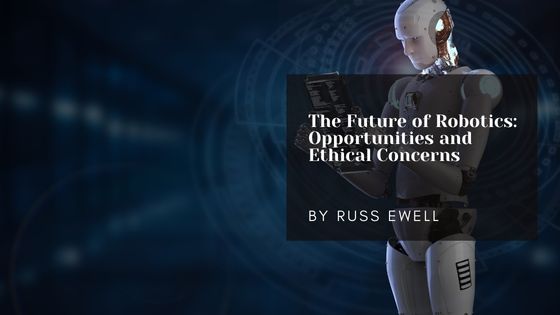As we stand on the brink of a new technological era, the future of robotics is both thrilling and complex. The rapid advancements in robotics technology promise to revolutionize numerous sectors, from healthcare and manufacturing to education and everyday life. However, with these exciting opportunities come significant ethical concerns that must be addressed to ensure a balanced and equitable integration of robots into society.
Opportunities in Robotics
1. Healthcare Transformation: One of the most promising areas for robotics is healthcare. Robots can perform surgeries with precision that surpasses human capabilities, reduce recovery times, and minimize the risk of infections. Robotic assistants can aid in patient care, especially for the elderly and disabled, providing companionship and monitoring vital signs. Telemedicine robots can extend the reach of medical professionals to remote areas, ensuring better healthcare access for underserved populations.
2. Revolutionizing Manufacturing: In manufacturing, robots are set to increase efficiency and productivity. Advanced robots can work 24/7, reducing production costs and time. They can handle dangerous tasks, reducing the risk of workplace injuries. The integration of artificial intelligence (AI) with robotics in manufacturing processes can lead to smart factories where machines learn and adapt, optimizing operations continuously.
3. Enhancing Education: Robots in education can provide personalized learning experiences. Educational robots can engage students in interactive learning, help with special needs education, and offer tutoring in various subjects. They can also assist teachers by handling administrative tasks, allowing educators to focus more on teaching and mentoring.
4. Everyday Applications: Robots are increasingly becoming part of our daily lives. From robotic vacuum cleaners to automated kitchen appliances, they are making household chores easier. Personal assistant robots can manage schedules, set reminders, and even control smart home devices, enhancing our daily efficiency and convenience.
Ethical Concerns
1. Job Displacement: One of the most significant ethical concerns is the potential for job displacement. As robots take over tasks traditionally performed by humans, many fear widespread unemployment and economic disparity. It is crucial to develop strategies for workforce transition, including retraining programs and social safety nets, to mitigate these impacts.
2. Privacy Issues: Robots, especially those integrated with AI and connected to the internet, pose serious privacy concerns. They can collect vast amounts of personal data, raising issues about data security and surveillance. Ensuring robust data protection laws and transparent data usage policies is essential to safeguard privacy.
3. Ethical AI and Decision-Making: The integration of AI in robotics raises questions about ethical decision-making. How should a robot prioritize in life-and-death situations, such as in autonomous vehicles? Ensuring that robots make ethical decisions aligned with human values is a significant challenge. Developing ethical guidelines and regulatory frameworks is crucial to address these concerns.
4. Dependence and Autonomy: As we become more reliant on robots, there is a risk of losing essential skills and autonomy. Over-dependence on robots can lead to a decline in critical thinking and problem-solving abilities. Balancing the benefits of robotics with maintaining human skills and autonomy is essential.
5. Accessibility and Equity: Ensuring that the benefits of robotics are accessible to all, regardless of socioeconomic status, is another critical ethical issue. There is a risk that advanced robotics could exacerbate existing inequalities if only accessible to the affluent. Policymakers must work to ensure equitable distribution of these technologies.
Conclusion
The future of robotics holds immense promise, with the potential to transform various aspects of our lives for the better. However, it is accompanied by ethical concerns that require careful consideration and proactive management. Balancing the opportunities and challenges involves developing robust ethical frameworks, inclusive policies, and continuous dialogue between technologists, ethicists, and the public. By doing so, we can harness the power of robotics to create a future that is innovative, equitable, and aligned with our core human values.
